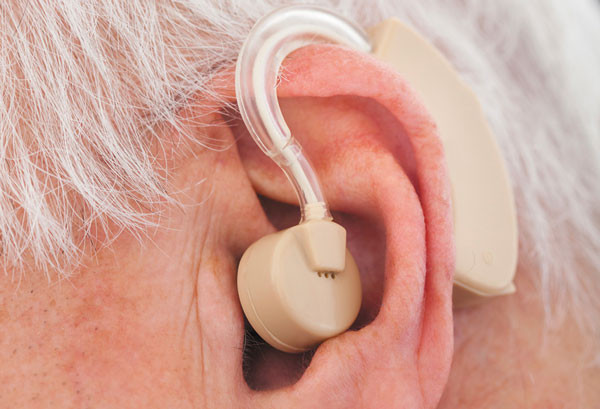Recent Blog Articles

Wildfires: How to cope when smoke affects air quality and health

PTSD: How is treatment changing?

Virtual mental health care visits: Making them work for you

How healthy is sugar alcohol?

A bird flu primer: What to know and do

New urine test may help some men with elevated PSA avoid biopsy

Dupuytren's contracture of the hand

Why play? Early games build bonds and brain

Moving from couch to 5K

How — and why — to fit more fiber and fermented food into your meals
Mind & Mood Archive
Articles
Marijuana use may be harmful to mental health—The Family HealthGuide
Marijuana use may be harmful to mental health
Think smoking marijuana is harmless? Think again. Chronic users of the drug often find themselves lacking motivation. Some even seem depressed or have other signs of mental illness. But does chronic marijuana use lead to psychiatric problems? Or do people suffering from mental illness use marijuana to self-medicate? While this drug was becoming increasingly popular with young people in the 1990s, researchers were busy trying to figure out if marijuana was a cause or an effect of psychiatric problems. And their work seems to have paid off. Research now indicates that marijuana use increases the risk of depression, as well as schizophrenia. But at the same time, depressed people do not use marijuana more often than their non-depressed counterparts.
In an Australian study, researchers interviewed 1,600 14- and 15-year-olds, then again seven years later. Participants filled out a questionnaire, reporting on their use of marijuana and symptoms of depression or anxiety. A surprising 60% of the participants had used marijuana by the time they were 20. The researchers found that the young women who had used marijuana weekly as teenagers were twice as likely to have depression as a young adult than women who did not use the drug. Daily use as a teenager was associated with four times the risk of depression for young women.
Dementia rate may be on the decline, major cardiovascular study indicates
Research we’re watching
The Framingham Heart Study—which has charted the lifestyles and health status of the residents of Framingham, Mass., since 1948—has been tracking the development of dementia among participants since 1975. In a recent analysis, published in the Feb. 11, 2016, issue of The New England Journal of Medicine, researchers calculated the dementia rate among 5,205 people ages 60 or older. The participants had physical exams, including tests for dementia, every five years. The researchers determined that the five-year rate of dementia was 3.6% between 1982 and 1986, 2.8% between 1991 and 1996, 2.2% between 1998 and 2003, and 2.0% between 2009 and 2013. Moreover, the average age when dementia was diagnosed went from 80 to 85 over those three decades.
The declining dementia rate was registered only in high school graduates, but they made up most of the Framingham participants. The rate of cardiovascular disease—including stroke, atrial fibrillation, and heart failure—also fell during the three decades. In that sense, the results give further support to findings that education (which may build up cognitive reserves) protects against dementia, and cardiovascular disease (which restricts blood flow to the brain) may promote it. They provide encouragement that pursuing a healthy, engaged lifestyle may pay off.
Owner of a lonely heart?
Loneliness and social isolation have been linked to higher risk of having a heart attack, needing a procedure to clear blocked heart arteries, or experiencing a stroke.
Yes, you can stick to an exercise regimen!
Put some oomph into your intentions with simple strategies to keep you on track.
The new year brings new resolve. But if this is the year you’re finally going to start exercising and keep exercising, you’ll need strategies to back up your good intentions. “Research indicates that people have limited reserves of willpower that are taxed by many different aspects of life, such as eating a healthy diet or doing household chores. If you exhaust your will-power in one area, you’ll have less to expend in the others,” says Rachel Wilson, a physical therapist with Harvard-affiliated Brigham and Women’s Hospital.
If you are returning to exercise after a long break, or if you’ve never exercised, get your doctor’s okay first. Then use some of the following strategies to stay on the path to a healthier lifestyle.
How your attitudes affect your health
A positive view of life and aging may help you live longer.
Giving life two thumbs up may help you stay healthier.
Image: marejuliasz/iStock
Do you look forward to the next week? Do you feel younger than your age? Do you have a sense of purpose? If so, you may already have done something to reduce your risk of degenerative diseases and may even be adding years to your life.
The lowdown on low-grade depression
It's called dysthymia, and it often goes unnoticed and thus undiagnosed and untreated.
Image: Thinkstock
Everyone feels down at some time. You may lack energy, have trouble sleeping, or just feel blah. The feeling often goes away, or it comes and goes, but does not seem like a cause for concern. Yet if these blue feelings persist, they could be a red flag for a type of depression called dysthymia, or low-grade depression.
"Even though dysthymia is regarded as a lesser form of depression, it should be taken seriously," explains Dr. David Mischoulon, psychiatrist at Harvard-affiliated Massachusetts General Hospital. "Its persistent hold can interfere with your health, family, and social life."
Hearing aids may help improve brain function
Image: AndreyPopov/Thinkstock
In the Journals
Here is another reason to get your hearing checked: it could strengthen your brain. A study to be published in the June 2016 American Journal of Audiology found that hearing aids improve brain function in people with hearing loss. Hearing loss can interfere with cognitive abilities because so much brain effort is put toward understanding speech, according to lead researcher Dr. Jamie Desjardins, assistant professor of speech language pathology at the University of Texas at El Paso. "Therefore, hearing aids can not only improve one's ability to hear, but also restore lost brain function," she says.
The study examined subjects in their 50s and 60s with bilateral sensorineural hearing loss—the most common type of permanent hearing loss—who had never used hearing aids or sought any evaluation. They were tested to measure their working memory, selective attention, and processing speed. The subjects wore hearing aids for an average of eight hours a day for six months. By the end of that time, the group had improved working memory by 14% and selective attention by 20%. Processing speed increased by 0.2 seconds from 1.4 seconds to 1.2.
Alcohol, even in moderation, could harm your brain
Research we're watching
Even moderate drinking may not be good for your brain, according to a study published online June 6, 2017, by The BMJ. Researchers from the University of Oxford and University College London, found that imbibers, even those who met definitions for moderate drinking, saw higher rates of cognitive decline and brain shrinkage than their teetotaling counterparts.
The study followed 550 men and women for 30 years, measuring their brain structure and function to determine how alcohol use affects the mind over time. What they found is that the more people drank, the more atrophy occurred in the brain's hippocampus, a seahorse-shaped structure in your brain that plays a role in storing memories. The highest risk was for people who drank 17 standard drinks or more of alcohol per week. But even people who drank moderately saw an elevated risk for cognitive changes.
What to do when reading gets harder
Treating underlying conditions and using helpful strategies may be all it takes to get you back on track.
Reading for pleasure is one of life's great gifts. It's an escape to another world or a path to increased knowledge. Plus, reading about a subject that's new to you challenges the brain, which may help create new brain cell connections. But many aspects of health can affect our ability to read in older age.
Physical changes
Chronic disease and age-related changes can have a big effect on your ability to read. Consider these factors:
Recent Blog Articles

Wildfires: How to cope when smoke affects air quality and health

PTSD: How is treatment changing?

Virtual mental health care visits: Making them work for you

How healthy is sugar alcohol?

A bird flu primer: What to know and do

New urine test may help some men with elevated PSA avoid biopsy

Dupuytren's contracture of the hand

Why play? Early games build bonds and brain

Moving from couch to 5K

How — and why — to fit more fiber and fermented food into your meals
Free Healthbeat Signup
Get the latest in health news delivered to your inbox!
Sign Up









